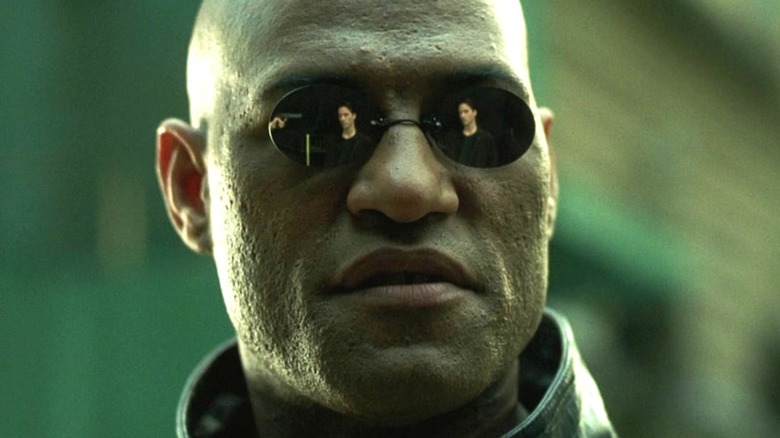
In 1999, fans were highly anticipating the release of the "Star Wars: Episode I — The Phantom Menace," which had been generating hype since its trailer debut the previous November. However, while science fiction aficionados ended up largely disappointed with the direction of George Lucas' prequel, there was another, unexpected place to turn for a mind-bending narrative and state of the art special effects: "The Matrix." The Wachowski's game-changing action flick beat "Star Wars" to theaters by less than two months, and by the end of the summer, it was clearly the sci-fi hit of the year.
"The Matrix" was unique for its combination of different influences. The film fuses Eastern philosophy with western works like Plato's "Allegory of the Cave" and Descartes' "First Meditation," forming an exploration of consciousness and reality. The cyberpunk visuals draw from anime and manga, and the eye-popping action sequences feature incredible stunt work inspired by the best of kung-fu cinema. But "The Matrix" is more than the sum of its parts. With each of these elements working in concert, every one feels engaging and brand new.
With the next chapter of the Matrix saga soon to be unveiled, it's a better time than ever to appreciate the original film's groundbreaking legacy. Science fiction fans rewatching "The Matrix" will also want to watch these other great films.
The Invisible Man (1933)
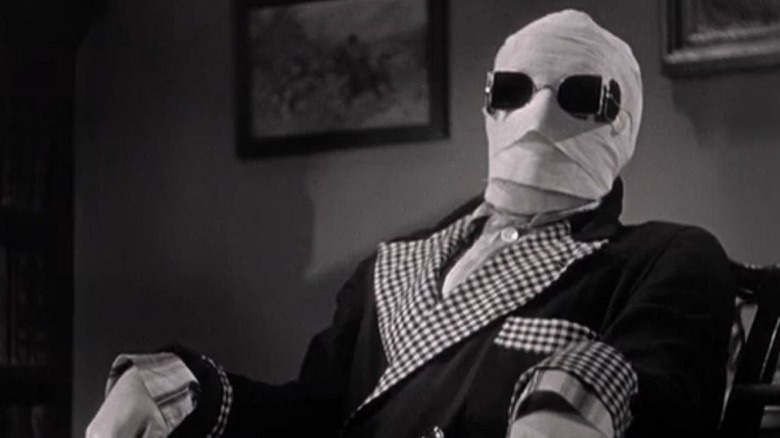
The personal construction of identity and body dysmorphia are integral themes in "The Matrix." When Neo discovers his new reality in the Matrix, he finds he can transform his body into any image that he chooses. It gives him freedom from his anxieties, and a queer reading of the text only makes the Wachowski sisters' insights more interesting. They explore a world in which characters have full freedom to express themselves.
The notion of body image is ever present throughout the history of science fiction, and it's a theme that author H.G. Wells was very interested in. Wells' work has frequently been brought to the screen, but many adaptations highlight the spectacle intrinsic to his stories instead of carefully exploring his themes in a nuanced way. However, the original 1933 version of "The Invisible Man" takes its characters and events seriously. While later films in the Universal Monsters franchise would turn the character into another silly horror creature, James Whale's original classic is a human drama that showcases the character's torment.
The film follows Wells' story about a brilliant scientist named Dr. Jack Griffin (Claude Rains), who has turned invisible as a result of an experiment. Griffin attempts to hide his secret as he stays at a hotel, but his attempts to mask his invisibility only terrify the local residents, and he becomes a target of an angry mob. Like the Wachowskis, Whale was a queer filmmaker, and the theme of persecution is prominent in "The Invisible Man."
THX-1138
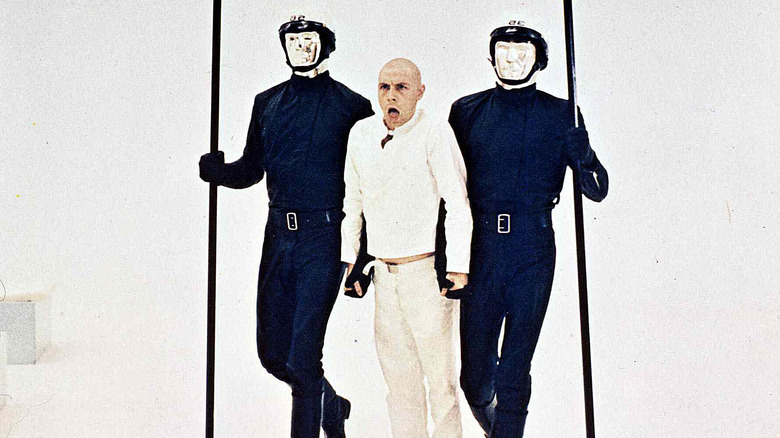
Although the Wachowskis showed George Lucas up when they released the better sci-fi movie of 1999, Lucas' impact on the genre can't be understated. Obviously, Lucas is best known for the creation of the Star Wars franchise, which is often compared to "The Matrix" for its similarly original premise, memorable characters, philosophical undertones, and thrilling set pieces. However, "The Matrix" is a far darker franchise that explores a post-apocalyptic world where a totalitarian system controls everyone's choices and interactions. These were concepts Lucas also explored in his brilliant debut feature film.
When he was a film student at the University of Southern California in the late 1960s, Lucas wrote and directed the groundbreaking short film "Electronic Labyrinth: THX 1138 4EB." The short explored a dystopian future where humans are known only by a numerical value, and everything is controlled by an aggressive police force. One man, known only as THX-1138, attempts to escape to freedom. The 15-minute short was a film festival favorite that announced Lucas as a creative force that the industry needed to take seriously. In 1971, he extended the concept into a full-length film that showed the world in more detail.
Robert Duvall stepped into the titular role, and like Neo (Keanu Reeves) in "The Matrix," he's a very sympathetic character who is forced to make brave decisions in order to survive: THX-1138 risks losing his romantic partner, LUH-3417 (Magie McOmie), if he chooses to rebel against the oppressive system.
A Clockwork Orange
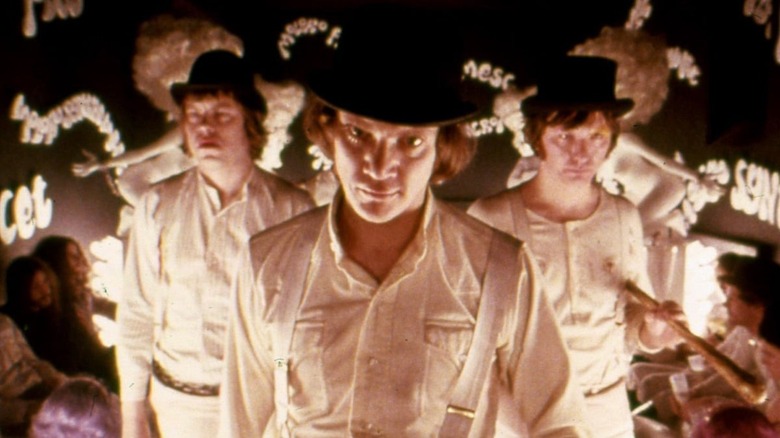
The totalitarianism and complete dominance of an overarching force presented in "The Matrix" was terrifying to viewers in 1999. The film represented genuine fears that many had over humanity's growing reliance on technology, which had only become more prominent during the early days of the internet. The impending turn of the century and Y2K anxieties made it particularly relevant, but even beyond the contemporary events, the overall notion of not trusting your reality is a horrifying concept.
Science fiction, and particularly stories about dystopian futures, need to be relevant to the themes at the forefront of their respective era. Just as "The Matrix" captured anxieties over these technological advances, Stanley Kubrick explored the fear of losing personal freedoms with his 1971 masterpiece "A Clockwork Orange." Discussions about how to curb youthful malcontents and violence were frequent thanks to the countercultural movement of the time, as young people were expressing their political opinions by protesting and joining activist movements. Many participants feared that they were being watched and that the government was attempting to control their behavior; as a result, the concept of a future where juvenile delinquents are forced into painful behavioral therapy was eerie.
Based on the acclaimed 1962 novel by Anthony Burgess, "A Clockwork Orange" follows the violent young man Alex (Malcolm McDowell). Alex leads a gang and commits robbery, rape, and assault while listening to classical music. And yet, amazingly, the horror only ramps up when the police state captures him and forces him into an extreme rehabilitation program that threatens to take away both his individuality and his sanity.
They Live
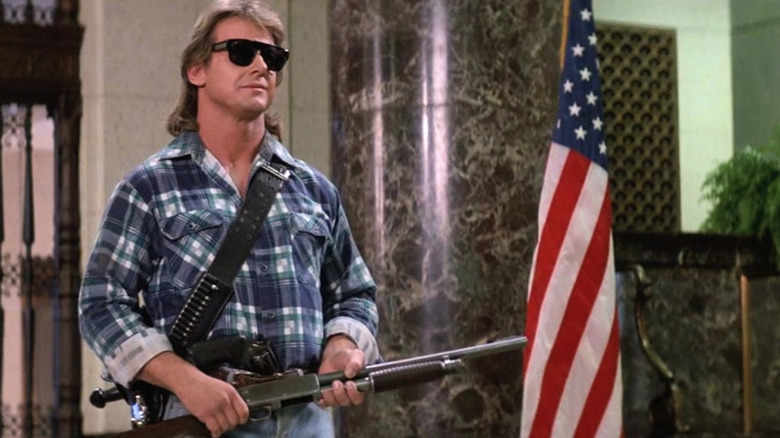
"The Matrix" forced viewers to question their realities. In one highly memorable scene, Neo is given the choice between the "red pill" and the "blue pill"; he must choose either to see the world for what it is, or live in blissful, blind ignorance. Neo bravely chooses to accept reality, and learns that the year is not 1999 as he imagined. A technological army is simulating events that seem real while feeding off of humanity's lifeforce, and Neo is called to rebel against the machines by joining Morpheus (Laurence Fisburne) and Trinity (Carrie Anne-Moss).
John Carpenter explored similar themes in 1988's "They Live." Although it was only a minor success at the time and not the blockbuster that "The Matrix" was, "They Live" earned a cult following, and its discussion of media control is even more relevant today. The film follows the homeless drifter Nada (Roddy Piper), who sees a television broadcast interrupted by a hacker who claims that the world is enslaved by the subliminal messaging of a totalitarian state.
After receiving a pair of special sunglasses, Nada learns that this is all true; the glasses show him that hidden in advertising and billboards are messages that command people to engage in rapid consumerism and to conform to an idealized state. Nada starts a resistance movement to shut off the source of these signals, and recruits the construction worker Frank Armitage (Keith David) to become his ally.
Darkman
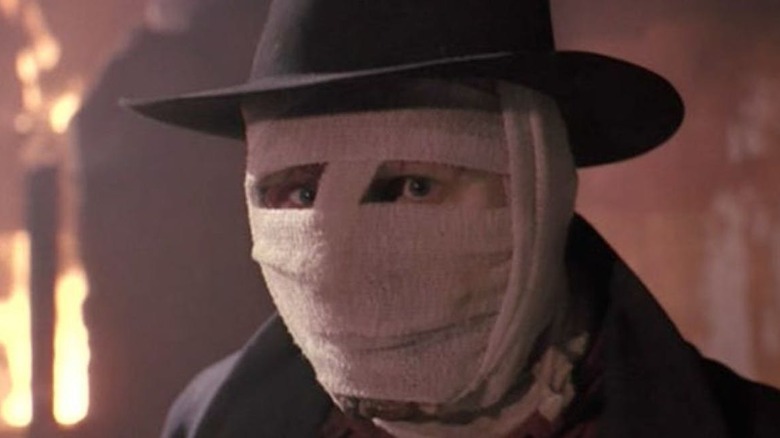
"The Matrix" tackles many complex issues, thanks largely to the meticulous worldbuilding that the Wachowskis performed, but those ideas wouldn't have been compelling to viewers if the film didn't have a compelling leading character. Thankfully, Neo is incredibly easy to empathize with. Even before learning about the Matrix, Neo feels disenfranchised, as he's unhappy with his day job and keeps his double life as a hacker secret. His primary interactions with others come through internet chat rooms; he's almost completely isolated before Morpheus discovers him. Reeves is one of the most likable actors on the planet, and created a hero worth rooting for.
Like the Wachowskis, Sam Raimi is an incredibly gifted visual storyteller who innovated with his groundbreaking effects work, but who also knows how to craft memorable characters. Raimi would help relaunch the modern superhero movie with his Spider-Man trilogy, but in 1992 he debuted an original superhero in "Darkman." Like "The Matrix," "Darkman" is an engaging mix of genres. While it retains the essence of a superhero origin story, it also draws from the horror genre that Raimi had so brilliantly influenced with his "Evil Dead" trilogy.
The film follows scientist Dr. Peyton Westlake (Liam Neeson), who, like Neo, has very noble intentions. He seeks to help burn victims recover from their injuries, but a shocking laboratory accident scars his face and grants him superhuman abilities. He decides to go on a path of vengeance as he hunts down mobster Robert Durant (Larry Drake).
12 Monkeys
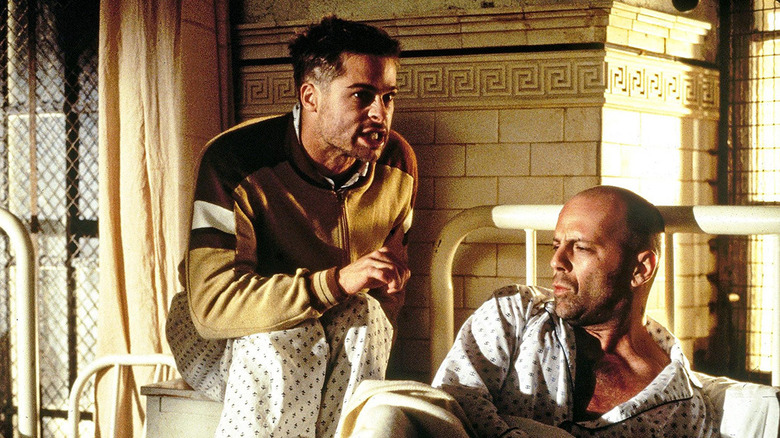
"The Matrix" isn't just an action-packed, visually stunning sci-fi action thriller, but a compelling mystery. Neo only gradually uncovers the Matrix's secrets, learning from Morpheus the extent of humanity's subservience to its technological overlords. He also learns of the supposed destiny of a mythic hero known as "The One" that is destined to destroy the Matrix and restore humanity to its rightful independence. Morpheus believes strongly in this prophecy, and Neo gathers clues through his encounter with the Oracle, who tells him that it's not his destiny to fulfill. It's only by the film's conclusion that his worthiness is revealed.
Having an interesting mystery element can help immerse viewers in a complex universe, as they're more compelled to keep watching if there are lingering questions. Terry Gilliam of Monty Python fame is, similar to the Wachowskis, a master of visual storytelling, and his 1995 sci-fi thriller "12 Monkeys" is set in a post-apocalyptic world much like that of "The Matrix." Gilliam explores the world of the film, which was inspired by the 1962 French short film "La Jetée," at a similarly patient pace as the protagonist, James Cole (Bruce Willis), is thrust into an unfamiliar environment with no one to explain it to him.
Cole is kept as a prisoner in 2035 in an underground facility; humanity has been devastated since 1996, when a radical group known as the Army of the Twelve Monkeys unleashed a deadly worldwide virus. But that's just the beginning of his troubles, which ramp up significantly when Cole is sent back in time to find the origins of the outbreak.
Gattaca
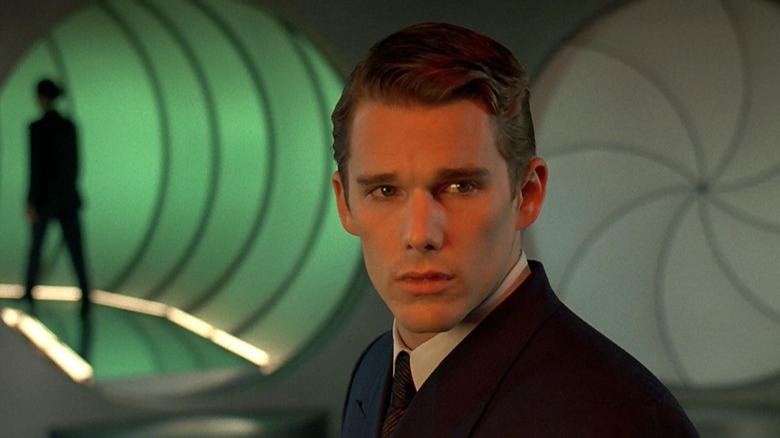
The concept of destiny as a controlling factor in dividing mankind is an intriguing element in "The Matrix." It is unfair that the characters have their fates predetermined and consciousnesses stolen because of events they have no control over, and the resistance movement by Neo, Trinity, Morpheus, and their allies is very inspirational as a result. Not only is their mission to better their own lives, but they're fighting for an important cause that will benefit the entire human race.
Andrew Niccol's 1997 science fiction thriller "Gattaca" also follows a relatable hero who fights against a dystopian system by dismantling it from the inside. Like the Wachowskis, Niccol's concept of a totalitarian state is distinct from the classic science fiction that came before, and it's very impressive that "Gattaca" was his directorial debut. "Gattaca" is set in a future controlled by eugenics, where societal function is determined by genetic makeup. Children can only be created after a delicate process of selecting hereditary traits; those born without these traits are deemed to be "undesirable." The title "Gattaca" is made up of the letter A, C, G, and T, an allusion to the DNA nucleobases adenine, cytosine, guanine, and thymine.
The story follows Vincent Freeman (Ethan Hawke), who dreams of becoming an astronaut. Vincent is denied the chance to go to space because of his genetics, but the plot thickens when former swimming champion Jerome Eugene Morrow (Jude Law) offers him tissue and blood samples so that Vincent can take his identity.
Universal Soldier: Regeneration
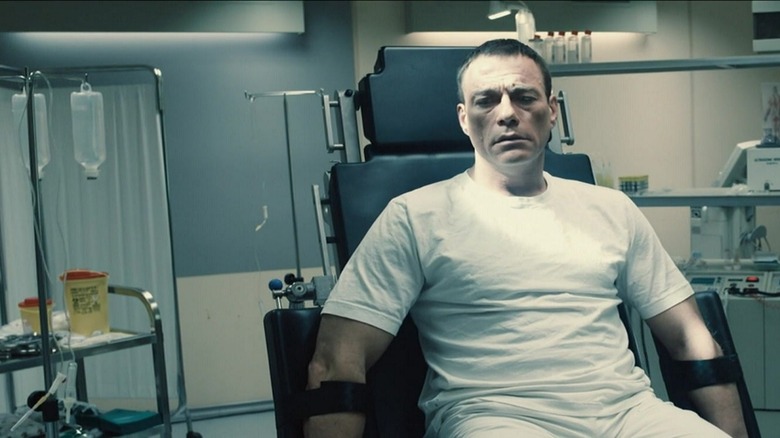
"The Matrix" isn't just a science fiction classic, but one of the greatest action movies ever made. The mix of gunplay, kung fu, superpowered characters, and biopunk made the trilogy completely unique amidst other sci-fi action films and launched countless imitators of the iconic "bullet time" sequences. Action cinema had developed extensively throughout the '90s, and "The Matrix" was a worthy conclusion to the breakthrough decade, ranking alongside other sci-fi favorites such as "Terminator 2: Judgment Day," "Total Recall," and "Starship Troopers."
Compared to these groundbreaking sci-fi action films, which combined intelligent storylines with inventive spectacles, Roland Emmerich's 1992 film "Universal Soldier" was hardly worthy. The film follows two Vietnam War soldiers, Luc Deveraux (Van Damme) and Andrew Scott (Lundgren), who both perish after an argument about killing innocent civilians. Their reanimated bodies are brought back to life by a secret military program that transforms them into cybernetic androids. The logic is faulty and Emmerich's action sequences lack weight, and the initial sequels weren't any more impressive. However, director John Hyams took control of the franchise in 2009 with "Universal Soldier: Regeneration" and replaced corniness with grittiness.
"Universal Soldier: Regeneration" takes Deveraux seriously, as he struggles to resist the violent tendencies he was forcibly given. Hyams actually knows how to construct a compelling set piece, and the stunt work in "Regeneration" is incredible as Deveraux is forced back into duty in order to save the Ukrainian prime minister's son from terrorists who've stolen the Universal Soldier technology.
Cloud Atlas
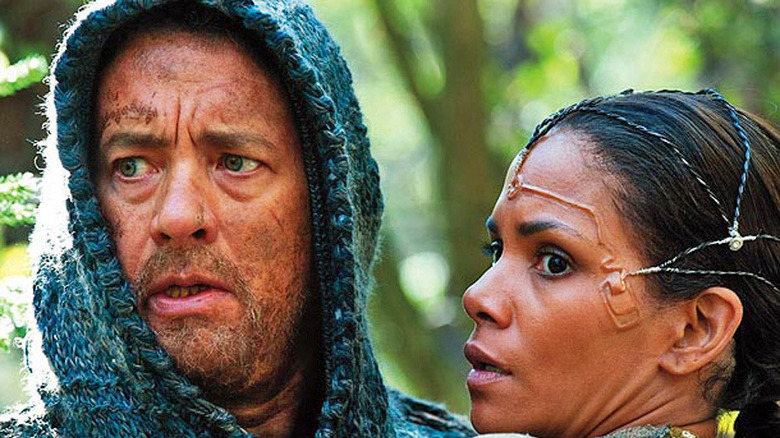
The Wachowski sisters are among the most distinguishable filmmakers of the 21st century. They've developed a unique style with eye popping visuals and complex narrative mythologies that has inspired many imitators. Although the original "The Matrix" is unquestionably their best and most iconic masterpiece, their entire filmography is fascinating. Even a film as terrible as "Jupiter Ascending" is an original work that only they could've made.
David Mitchell's 2004 novel "Cloud Atlas" was deemed to be unfilmable because of how complex it is, so naturally the Wachowskis took a shot at adapting it. 2012's "Cloud Atlas" is a work of astonishing imagination; Roger Ebert claimed it was "one of the most ambitious movies ever made," and the Wachowskis themselves cited Stanley Kubrick's masterpiece "2001: A Space Odyssey" as a point of comparison. "Cloud Atlas" requires multiple viewings to understand fully, and demands that the viewer both pay close attention and give in to the visual spectacle. Patient audiences willing to invest their time may find that "Cloud Atlas" is a gorgeous, awe-inspiring examination of the patterns and themes that ripple across the course of time.
Unfolding in six timelines, the film follows events in the Pacific Islands in 1849, Cambridge and Edinburgh in 1936, San Francisco in 1973, London in 2012, Neo Seoul in 2144, and a mysterious post-apocalyptic island in 2321. The same core group of actors play multiple characters in each, showing the connections that form across the different eras.
A.I. Artificial Intelligence
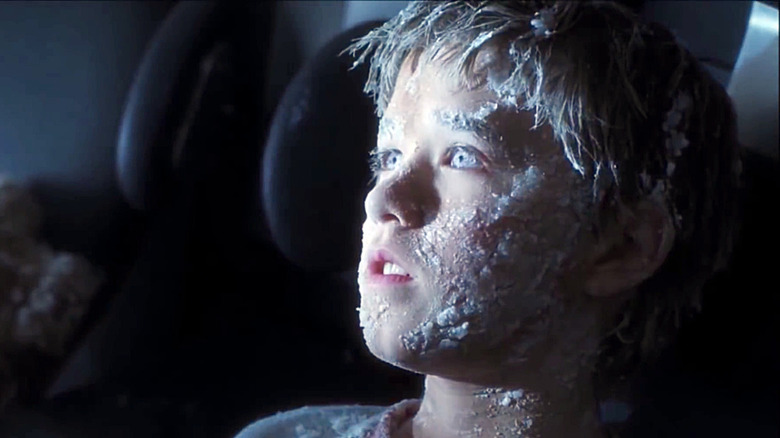
Family is integral to "The Matrix." Neo is lost without a real family, and when the film begins he's largely isolated. When Neo joins his new allies, Morpheus becomes the paternal figure that he never had, and he's able to find a new family of sorts with Tank (Marcus Chong), Apoc (Julian Arahanga), Mouse (Matt Doran), and Switch (Belinda McClory).
Steven Spielberg frequently explores the themes of lost families and abandoned children, and 2001's "A.I. Artificial Intelligence" is set in a futuristic world that's over-reliant on technology, just like the setting of "The Matrix." Stanley Kubrick developed the initial concept for the movie before he tragically passed away in 1999, leaving Spielberg to pick up the reins. You can see the influence of both directors in the final product. Compared to Spielberg's more heartfelt sci-fi films like "E.T. the Extra Terrestrial" and "Close Encounters of the Third Kind," "A.I." is absolutely devastating, following a robotic child (Haley Joel Osment) who desperately seeks acceptance from a family but is denied the love he craves.
War Of The Worlds
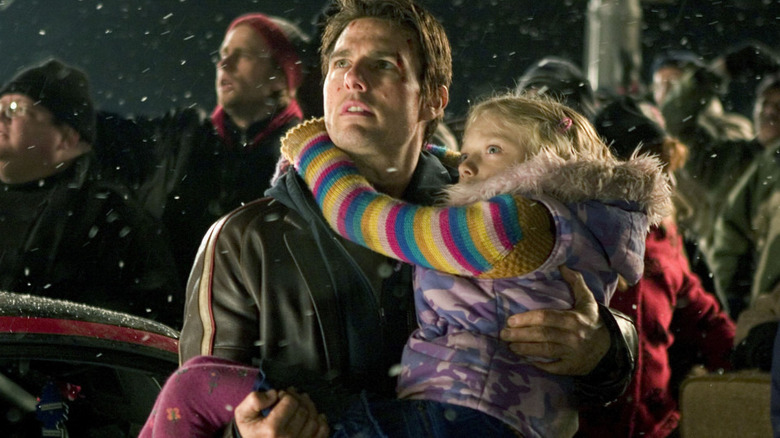
"The Matrix" isn't generally considered to be a horror film, but it's quite scary in its manifestation of 1999's anxieties about technology. Science fiction often relies on the societal fears of the era in which it's produced — H. G. Wells' classic novel "The War of the Worlds," for example, tackled the fear of war that was rampant in 1898, while the original 1953 adaptation explored the nuclear fears and Red Scare of the '50s. When Steven Spielberg crafted his 2005 reimagining of the classic story, he used it to examine the horrifying nature of domestic terrorism in a post-9/11 society.
"War of the Worlds" is certainly not a campy, fun alien invasion movie. It follows irresponsible father Ray Ferrier (Tom Cruise), who is tasked with taking care of his adolescent son Robbie (Justin Chatwin) and younger daughter Rachel (Dakota Fanning) over an extended weekend. Amidst their dysfunctional home life, the Martian forces attack and reap devastation on the major urban metroplexes. Spielberg's "War of the Worlds" isn't a rallying cry for patriotism, though, as humanity descends into chaos and begins preying on each other as the invasion continues.
The Fountain
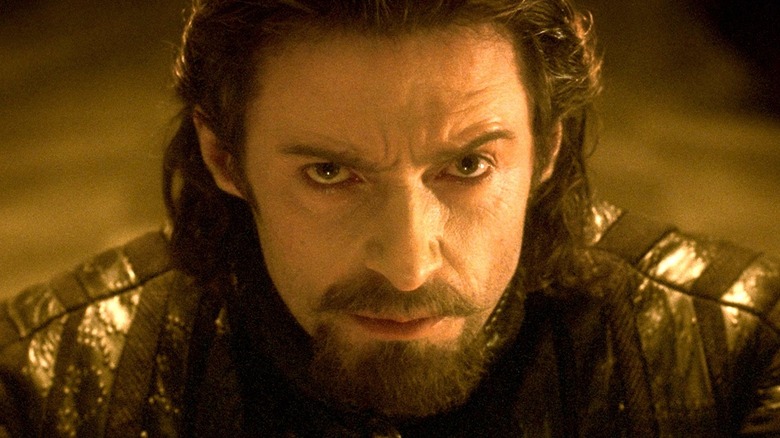
"The Matrix" showed that, even while carrying the weight of complex worldbuilding, science fiction can be very emotional. Neo is burdened with the expectations of being "The One" only shortly after learning about the existence of the simulated reality, and he struggles to adjust. He develops a strong bond with his fellow survivors, and when his friend Mouse dies it is devastating. Neo also truly cares for Morpheus, and his capture at the hands of Agent Smith (Hugo Weaving) leaves him without his mentor. Finally, he establishes a strong romantic bond with Trinity that only grows throughout the trilogy.
Similarly, Darren Aronofsky's 2006 science fiction fantasy epic "The Fountain" is one of the most emotional films of all time. The film follows scientist Thomas Creo (Hugh Jackman), who researches recurring patterns in history, yet is helpless while watching his wife Izzi (Rachel Weisz) die of brain cancer. Creo researches the origins of a South American tree that supposedly offers life-extending abilities, and the film explores corresponding events in the 16th century and the far-distant future.
Read this next: The 14 Greatest Action Movies Of The 21st Century
The post 12 Movies Like The Matrix Sci-Fi Fans Have to Check Out appeared first on /Film.
0 Commentaires